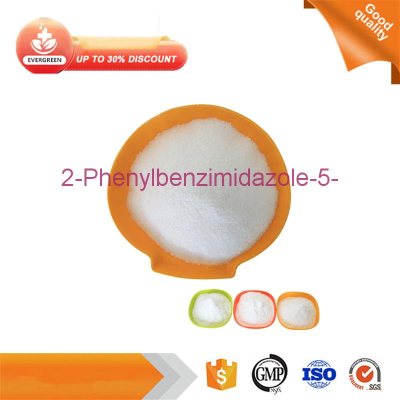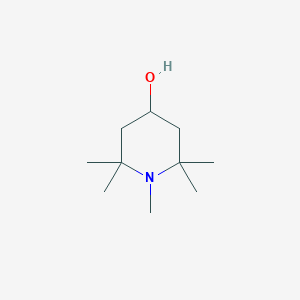-
Categories
-
Pharmaceutical Intermediates
-
Active Pharmaceutical Ingredients
-
Food Additives
- Industrial Coatings
- Agrochemicals
- Dyes and Pigments
- Surfactant
- Flavors and Fragrances
- Chemical Reagents
- Catalyst and Auxiliary
- Natural Products
- Inorganic Chemistry
-
Organic Chemistry
-
Biochemical Engineering
- Analytical Chemistry
- Cosmetic Ingredient
-
Pharmaceutical Intermediates
Promotion
ECHEMI Mall
Wholesale
Weekly Price
Exhibition
News
-
Trade Service
The picture shows the launch ceremony of the 2021 AICM Sustainability Report
Recently, the "2021 AICM Sustainability Report" (hereinafter referred to as the "Report") was officially released at the 2021 China Chemical Park and Industrial Development Forum AICM Special Session held in Yantai
.
In the "Report", 33 AICM member units shared the carbon peak carbon neutral goal and implementation path and plan, which provided a good reference for the chemical industry to achieve the dual carbon goal
Zhu Ji, Chairman of AICM, Senior Vice President of Cabot Corporation, President of High Performance Materials Business and President of Asia Pacific Region, introduced that responsible care and carbon reduction actions will be the key to the development of China's chemical industry in the next few years
.
AICM member companies are actively formulating carbon neutral goals and strategies, and have taken down-to-earth actions, such as using renewable energy to improve process efficiency, using environmentally friendly products, carbon compensation and other methods to achieve the double carbon goal, and look forward to a fair, A transparent, predictable and stable policy environment
Multinational companies need to pay attention to environmental regulations
Multinational companies need to pay attention to environmental regulationsDai Renwei, senior vice president of Arkema Asia Pacific and president of Greater China, and Tang Jiaxin, partner in charge of climate change and sustainable development services in Greater China of Ernst & Young Hua Ming, jointly released the "Report"
.
According to Dai Renwei, the main content of the "Report" includes 16 aspects including energy efficiency improvement and product quality improvement, carbon capture and carbon storage technology development, energy structure adjustment, process optimization, and carbon emission reduction investment
.
Among them, 33 AICM member companies provided a wealth of information and set their own emission reduction targets and specific time, all of which were earlier than the "30·60" time node
Dai Renwei believes that the chemical industry must promote carbon emission reduction through technological innovation
.
AICM member companies pay great attention to whether their products and solutions use less carbon in the production process
Tang Jiaxin said that the dual-carbon goal will profoundly promote the reform of the energy industry and the change of the energy structure, which in turn will cause major changes to the entire country's economic and industrial structure
.
When considering a carbon neutral route, all multinational companies in China must fully consider China's carbon neutrality-related mechanisms, laws and regulations, as well as local special plans, and fully consider what more clear rules will be issued in various regions and industries in China
In terms of target setting, Tang Jiaxin believes that the carbon emissions of the chemical industry are linked, and carbon neutrality will affect the energy structure and product structure of the company
.
Therefore, it is necessary to use a larger range of data to determine the basic data, and then determine the target value, and then split this target value into specific products
Many companies have formulated carbon neutral plans
Many companies have formulated carbon neutral programs Many companies have formulated carbon neutral programs At the symposium, a number of executives of multinational companies analyzed the company's carbon emission reduction goals and ideas
.
Dr.
Lin Bo, President of WACKER Greater China, said that the company's goal is very specific, which is to improve energy efficiency, reduce the amount of carbon dioxide produced per ton of chemical products, and pay attention to the transformation and upgrading of the energy structure
.
Li Lei, Vice President of Saudi Basic Industries Corporation and President of North Asia, said that Saudi Basic Industries Corporation has a very comprehensive goal in terms of reducing emissions.
In terms of reducing greenhouse gas emissions, energy consumption, water consumption, and waste generation, it is currently in line with Compared with 2010, it has been reduced by 15%, 14%, 10% and 46% respectively
.
Ling Hongen, president of ROHM Chemicals Asia, said that as a newly established company, ROHM soon formulated a global carbon emission reduction target.
By 2030, it will reduce carbon emissions by 30% per ton of products.
The target is now being resolved and implemented.
.
Fan Borui, senior vice president of Nouryon Asia Pacific, believes that the biggest challenge in the industry is how to ensure absolute reduction of carbon emissions in the process of accelerating technological development
.
Nouryon’s carbon emission reduction goal is to reduce emissions by 25% in 2025 compared to 2019, and to apply more low-carbon energy, while at the same time strengthening cooperation in the entire value chain to help downstream customers and parks achieve better economic performance.
Li Zhenmin, president of Linde Greater China, said that the company will reduce its greenhouse gas emission intensity by 35% by 2028
.
As a gas company, Linde will greatly reduce coal consumption by serving multiple types of companies, which will greatly help the overall carbon reduction, and it is also what Linde is currently doing
.
Many executives of multinational companies have also put forward suggestions for the chemical industry to achieve the dual-carbon goals
.
Entrepreneurs believe that the low-carbon development of the chemical industry requires a fairer market environment and more direct incentive policies for green production
.
For example, reducing the price of obtaining renewable electricity, promoting electric and hydrogen transportation vehicles for hazardous chemicals, and strengthening the banking and financial system's support for corporate transformation
.







